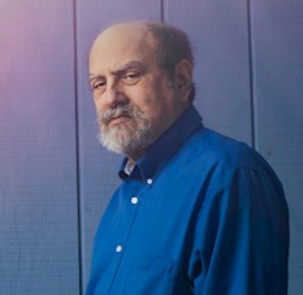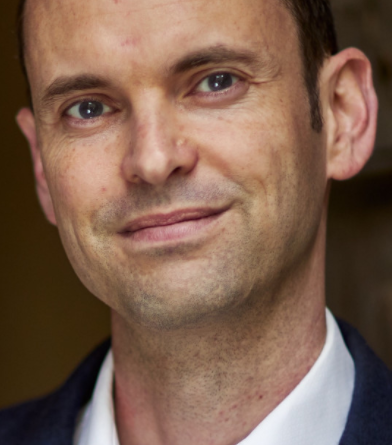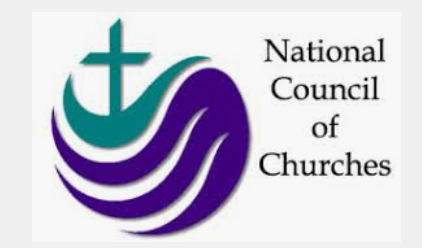Dear WesleyNexus Colleagues:
Recently I had occasion to research a verse in Ecclesiastes, and while there, I began to see other verses that connected with our current situation domestically, regionally and worldwide. A reading from Ecclesiastes is seldom chosen to serve as the basis for a Sunday sermon, and no one really knows who the author(s) of this document might have been, although some traditions identify the source with King Solomon. In Hebrew, the author is called simply Kohelet, meaning Teacher or “Preacher,” but the speaker, Kohelet, is tracing an extensive journey of radical doubt. As such, the book is considered by some as the most surprising, even subversive, text in the Bible. The author is a man who seems to have had everything that life might offer – palaces, vineyards, gardens, parks, pools, servants, the entire entourage of wealth and success – but discovers that they mean nothing. Right at the beginning (Chap 1, v 2) we read: “Meaningless! Meaningless!” says the Teacher. “Utterly meaningless!. Everything is meaningless.”
In our own situation, the world – and those of us in the United States included — is facing the uncertainty of the coronavirus, and most of the fear associated with the disease Covid-19 is that it strikes indiscriminantly. To be sure, minorities and those at the lower end of the economic spectrum will suffer significantly more illness and death than those well off, but no one is immune. What is most interesting to me is the choice of words in the Hebrew text: the key word in the book is hevel – thirty-eight times in all – usually translated as “vain” or “pointless.” In fact, however, this comes from a family of words meaning “breath” as in “the breath of life” or “soul” – associated with words like nefesh, coming from the word meaning “to breathe deeply,” and neshamah meaning “to inhale,“ and ruach, which we easily identify as “spirit” or “wind” in the Genesis creation story. “To breathe deeply” – this, of course is exactly what the victims of Covid-19 cannot do, and soon thereafter, many of them die.
Hevel, a shallow breath, is all that separates the living from the dead. Some live, but some die, and it seems as though, upon death, we may never have been. We build, we accumulate possessions, but – alas, all is vanity. The wisdom we seek may lead nowhere, for it brings us back to our mortality. To seek happiness in possessions is pointless, or so it seems to Kohelet, who concludes (Chap 3, v 19-20):
“Man’s fate is like that of the animals; the same fate awaits them both. As one dies, so does the other. All have the same breath; man has no advantages over the animal. Everything is but a fleeting breath. All go to the same place; all come from dust, and to dust, all return.”
For Kohelet there is no moralization of fate, there is no argument that virtue is its own reward. But out of this picture of pervasive despair, Kohelet refuses to let disillusion have the final word. When we affirm that only the divine is eternal, within the bounds of our mortality, we recognize that the present – our life right now – is a gift, and then we can seek its fullness in the NOW-ness we experience each day. Kohelet turns the page and says “I know that there is nothing better than to be happy and do good while you live” (3:12), and “enjoy life with your spouse whom you love, all the days of the fleeting life that God has given you under the sun” (9:9). Kohelet, who had the abundance of Job, comes to know that the sweetness of life is found in the simplest things, our relationships, love and work, doing good for others, weeping and laughing amongst trials and joys, accepting the limits of our human experience on earth.
This is the message that we gain from this slice of the Wisdom tradition. It may appear on the surface that we occupy a godless world, but it is our gift to be able to find meaning in life. Another key word in Ecclesiastes is simchah – which means, joy, celebration and exuberance – and this comes when we recognize that yes, our days may be numbered on the earth, but when we live responsively to the call of God, we find joy everlasting. In the face of death, in the circumstance of experiencing the shortness of breath, we can give thanks for the joys of family and friends, for the blessing of each new birth and new life that comes into the world, and for the peace that passes understanding. I am reminded of the closing words of Victor Hugo’s great drama Les Miserables, “To love another person is to see the face of God.” Let us never forget that, with every breath that we are given each day.
Lastly, thanks to our generous contributors. We are not asking for any contributions at this time and pray that you will keep your family’s safe and be willing to give to those who are in the most need. We will continue to share this newsletter in the coming months and encourage you to share articles and insights that will help us all weather these difficult times.
Until next month, may you be well, have courage and cultivate hope for better times.
Rick, Jennifer, Maynard, and the rest of the WesleyNexus team.
**************************************************
Why God Can’t Stop Evil and Why It Matters When Helping Hurting People by Tom Oord
3-Week Course Starts April 20

The pandemic is forcing many of us spend more time at home. But that means more time for educational projects, self-enhancement, and exploring important ideas. So…
Consider joining me for a three-week online course exploring the ideas in my best-selling book, God Can’t. I’ve titled it,
Why God Can’t Stop Evil and Why It Matters When Helping Hurting People
I designed this fully online course for people who want to dive deeper into the ideas and share them with others. There’s no set meeting time; each person logs on whenever is convenient. The course is a collaborative effort, with plenty of conversation and opportunities to share wisdom. This course begins April 20, and the cost is $99. The class still has openings for more participants. Here’s a link to find out more. Click HERE for more information.
**************************************************
A Letter from Catherine Keller, Drew Theological School

Dear Ones,
Particularly, in this letter, ones who claim some seriously biblical, or explicitly theological, orientation. Amidst this pandemic, ones who may be wondering….
Is God punishing us? Is God testing us? Is God teaching us a lesson?Is God fixing the world?
https://medium.com/@dostlund_42808/a-letter-from-catherine-keller-1930029c4914
**************************************************
Time alone (chosen or not) can be a chance to hit the reset button by Thuy-vy Nguyen
Assistant professor in psychology at Durham University in the UK.

Solitude has become a topic of fascination in modern Western societies because we believe it is a lost art – often craved, yet so seldom found. It might seem as if we ought to walk away from society completely to find peaceful moments for ourselves. Yet there is a quote I really like from the book Solitude: In Pursuit of a Singular Life in a Crowded World (2017) by the Canadian journalist Michael Harris: “I don’t want to run away from the world – I want to rediscover myself within it. I want to know what happens if we again take doses of solitude from inside our crowded days, along our crowded streets”.
https://aeon.co/ideas/time-alone-chosen-or-not-can-be-a-chance-to-hit-the-reset-button
**************************************************
I Assumed Science Had All the Answers. Then I Started Asking Inconvenient Questions by Sy Garte

My journey from atheist dogma to Christian faith was paved with intellectual and spiritual surprises.
**************************************************
Humans are hardwired to dismiss facts that don’t fit their worldview by Adrian Bardon
Professor of Philosophy, Wake Forest University

Something is rotten in the state of American political life. The U.S. (among other nations) is increasingly characterized by highly polarized, informationally insulated ideological communities occupying their own factual universes.
**************************************************
We Have the Power to Destroy Ourselves Without the Wisdom to Ensure That We Don’t: A Conversation with Toby Ord (Edge Cast)

TOBY ORD is a moral philosopher at Oxford University and a senior research fellow at the Future of Humanity Institute. His work focuses on the big picture questions facing humanity.
I’ve been thinking about just how bright our future could be, how science knows almost no limits to what we could achieve, to the durations that we could last, to the portion of the cosmos that we could discover and explore, and to the heights of quality in each of our lives or the types of achievements we could make. . . . It’s this vision of this wonderful and vast future that’s at stake that inspires me to think more carefully about the risks we face now and the ways that we might imperil all of this with our actions. What things can only our generation or our children’s generation do in order to protect this seed of humanity so that we can grow into something even more amazing, to protect our present and thereby protect our future?
**************************************************
National Council of Churches: Daily Scriptures, Prayers, and Meditations – April 8, 2020 (Follow daily readings, prayers, and meditations at http://nationalcouncilofchurches.us/topics/daily/).

| Romans 5:12-17, NRSV |
| Free Gift of Grace and Hope 5:12 Therefore, just as sin came into the world through one man, and death came through sin, and so death spread to all because all have sinned— 13 sin was indeed in the world before the law, but sin is not reckoned when there is no law. 14 Yet death exercised dominion from Adam to Moses, even over those whose sins were not like the transgression of Adam, who is a type of the one who was to come. 15 But the free gift is not like the trespass. For if the many died through the one man’s trespass, much more surely have the grace of God and the free gift in the grace of the one man, Jesus Christ, abounded for the many. 16 And the free gift is not like the effect of the one man’s sin. For the judgment following one trespass brought condemnation, but the free gift following many trespasses brings justification. 17 If, because of the one man’s trespass, death exercised dominion through that one, much more surely will those who receive the abundance of grace and the free gift of righteousness exercise dominion in life through the one man, Jesus Christ. |
| Where is Christ within the crowded desperation that COVID-19 has created? By Lee Catoe, the managing editor of Unbound and the Associate for Young Adult Social Witness for the Advisory Committee on Social Witness Policy, PCUSA |
| As the coronavirus makes its way across the world, panic has ensued, reflected in grocery stores depleted of toiletries and sanitizer, airlines shutting down travel, nation-wide bans, college closings, market craters, church live streaming, and individual and communal anxiety rising to an all-time high. While the US government does little in the face of this pandemic, we are forced into an eerie apocalyptic desperation where good sense, practical means, and respect for science seem lacking. We are in times that are straight from Hollywood fiction and yet, the events reveal we were only an epidemic or pandemic away from uncovering the problems of our democracy and our systems. Honestly, this should be no surprise. People should not have to die for us to see the glaring weaknesses of our healthcare system. People should not have to be in a state of desperation for us to see the lack of public health planning. Human beings should not have to bear these burdens. But they do…and the ones who will bear the largest burden are those who are not insured, who have pre-existing conditions, who do not have homes, who have mental illness, who are poor, who cannot take off work or work from home, who cannot simply leave college because their institution shut down (went cyber?), who cannot skip school because they have to eat. They suffer because of the systems that cannot handle one crisis ounce, one virus, one real challenge to change. They die because of the systems that favor those insulated by privilege and not the majority of the citizens who are affected. They are in pain because of the systems that care more about the market than they do about humanity. Where is Christ within the crowded desperation that COVID-19 has created!? John 5 tells us: Now in Jerusalem by the Sheep Gate there is a pool, called in Hebrew, Beth-zatha, which has five porticoes. 3 In these lay many invalids—blind, lame, and paralyzed. 5 One man was there who had been ill for thirty-eight years. 6 When Jesus saw him lying there and knew that he had been there a long time, he said to him, ‘Do you want to be made well?’ 7 The sick man answered him, ‘Sir, I have no one to put me into the pool when the water is stirred up; and while I am making my way, someone else steps down ahead of me.’ 8 Jesus said to him, ‘Stand up, take your mat and walk.’ 9 At once the man was made well, and he took up his mat and began to walk. The stirring of the pool refers to the widely believed legend that an angel would come and stir the waters of the pool and then you had to get into the pool quickly in order to be healed. Hundreds of people must have been crowded around this pool just waiting in desperation and anticipation. But as the man says, he could not get into the pool as others would step over him…he was stuck for 38 years! People, healthier than he, more able to play the system, more able to ignore others, walked over him. That swirling, myth of a system wasn’t working. This system convinced this man to believe it would heal him even when Jesus asks him if he wanted to be made well. But the Bethsaida pool system does not work for him. This system creates desperation because it only works for a few. And Jesus sees this. Jesus sees that there needs to be another option. He sees through the false hope to the death by stagnation that haunts the whole crowd. In the same way, Jesus sees that the illusion that the United States’ healthcare system or economic system or housing system is sufficient is just that…an illusion and a lie. These systems have almost mythic power over us based on our desire that they work, but under that is a desperation that there is no alternative. The government is not going to rescue us. As our siblings suffer with this new coronavirus, as they take the fall for rulers and leaders selling mythical solutions, we must seek, fight for, and imagine other options because that is what Christ did. Christ is found in the other option: The option that takes imagination. The option that puts people first not politics or polity. The option that drains the pools of oppressive systems and economic parasites. The option that is not about ego or pride. The option that can withstand victim-blaming . But has the other option been thrown away or is it too late for it? If that is the case, then we are in times of deep uncertainty so we must do what we can. |

